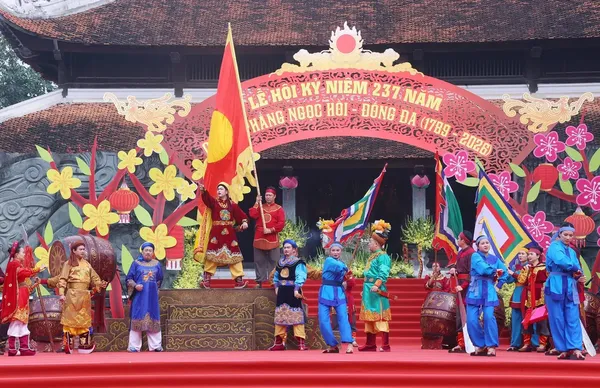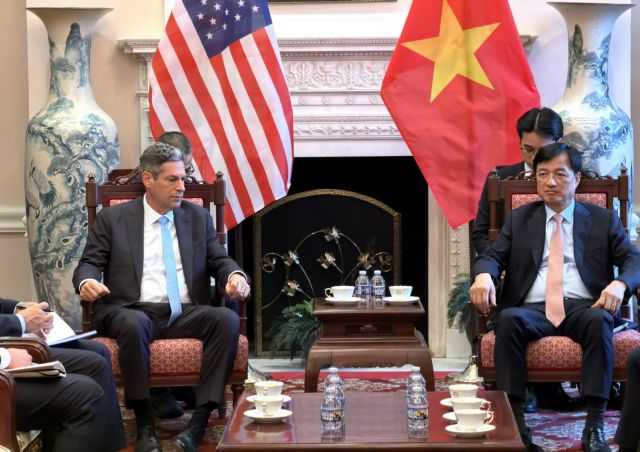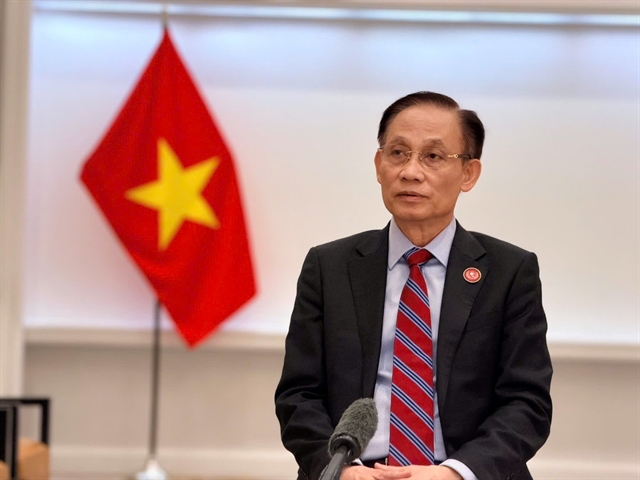 Politics & Law
Politics & Law
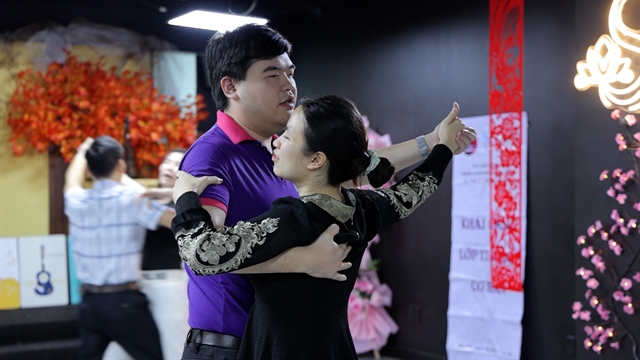
Nguyễn Quốc Dũng, Vietnamese Deputy Minister of Foreign Affairs and head of Việt Nam's ASEAN Senior Officials' Meeting, speaks to media about the contributions of Việt Nam, as ASEAN Chair 2020, to regional efforts to build the ASEAN Community and cope with the COVID-19 pandemic
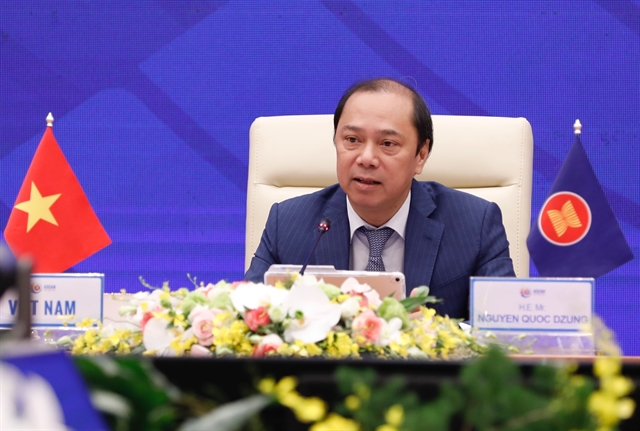
|
| Vietnamese Deputy Minister of Foreign Affairs Nguyễn Quốc Dũng. — VNA/VNS Photo |
Nguyễn Quốc Dũng, Vietnamese Deputy Minister of Foreign Affairs and head of Việt Nam's ASEAN Senior Officials' Meeting, speaks to media about the contributions of Việt Nam in its capacity as ASEAN Chair 2020 to regional efforts to build the ASEAN Community and cope with the COVID-19 pandemic.
As ASEAN Chair in 2020, what does Việt Nam expect at the 37th ASEAN Summit? Looking back at 2020, how has Việt Nam made efforts to overcome challenges as Chair?
The most important goal we look forward to is the summit’s successful convening. All of the goals we have set since early this year are within reach. That is our biggest expectation.
The year 2020 when Việt Nam holds ASEAN Chair is such a challenging time. The outbreak of the COVID-19 pandemic was so unexpected that it upended our preparations in 2018 and 2019 for the Chairmanship in 2020.
While all countries focus their resources on protecting their people, the question is whether ASEAN member states will continue with the commitments to pursue long-term goals of building and developing the ASEAN Community or not.
Việt Nam must find ways to adapt and have switched plans to properly meet what ASEAN countries are in need of. So we have turned the priorities to COVID-19 pandemic response.
Besides, we do not want to abandon all of the works that ASEAN countries have built and interrupt community-building efforts, so we have continued to come up with initiatives to maintain the process of building the ASEAN Community.
The workload has become two or three times heavier than before but luckily, we have made efforts since early this year to accomplish the responsibilities.
How will initiatives Việt Nam proposed this year contribute to ASEAN’s community-building process in the coming years?
First of all, Việt Nam’s initiatives or the joint efforts of ASEAN member states over the past time have helped the bloc withstand the pandemic and move on to recovery.
Secondly, during ASEAN Chairmanship 2020, Việt Nam has reviewed all we have done over the past 10 years and at the same set directions for a comprehensive ASEAN plan not only in 2020 but after 2020.
Those are contributions not only for the present but also for the long term.
How do you assess connections among ASEAN member states in ensuring local livelihoods and economic recovery in the post-pandemic period?
The more difficult the situation is, the closer we must stick together. ASEAN 2020’s theme 'Cohesive and Responsive' is relevant to the current situation. In fact, ASEAN countries have stayed closer to each other while coping with COVID-19.
ASEAN countries have worked together to devise initiatives for COVID-19 response and recovery after the pandemic as well as mapped out the 2025 Master Plan for ASEAN connectivity.
ASEAN has attached sub-regional co-operation to the bloc’s growth programmes to promote joint strength, narrow development gaps between countries and not to leave any nation or any area behind.
Could you provide more details on ASEAN’s healthcare collaboration in responding to the COVID-19 pandemic, especially the establishment of ASEAN centre for public health emergencies and emerging diseases?
In the context of the evolving pandemic, it is more urgent to establish a medical centre to offer assistance to all countries in responding to public health emergencies and emerging diseases.
Japan has shown its willingness to support ASEAN to set up the centre.
Japan and ASEAN have worked together and reached agreement on the centre’s feasibility. It will be launched at the ASEAN-Japan Summit this week. — VNS


